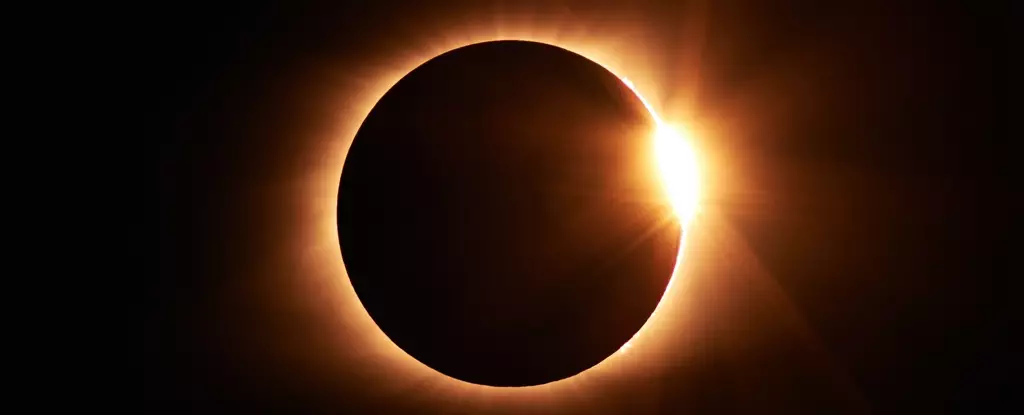

Total solar eclipses are a fascinating astronomical event that occurs when the Moon passes between the Sun and Earth, completely blocking the Sun’s face. This phenomenon plunges observers into a darkness similar to dawn or dusk. These events are relatively rare, happening roughly every 18 months at some location on Earth. The upcoming total solar eclipse on April 8 will follow a path of totality that crosses Mexico, arching north-east through Texas, the Midwest, briefly entering Canada, and ending in Maine. The last total solar eclipse that crossed the US took place on August 21, 2017.
An international team of scientists from Aberystwyth University, Nasa Goddard Space Flight Center, and Caltech will be conducting experiments during the upcoming eclipse near Dallas, within the path of totality. These experiments aim to shed light on the outermost part of the Sun’s atmosphere, the corona. The corona is a mysterious region that is significantly hotter than the Sun’s visible surface, a phenomenon that puzzles scientists. Total solar eclipses provide a unique opportunity to study the corona with exceptional clarity.
The team will be using two main scientific instruments during the eclipse. The first instrument, CIP (Coronal Imaging Polarimeter), captures images of the Sun’s corona with a polarizer. By measuring the corona’s density and studying phenomena such as the solar wind, the team hopes to gain valuable insights into the Sun’s atmosphere. The second instrument, CHLS (Coronal High-Resolution Line Spectrometer), collects high-resolution spectra to map the corona’s temperature and behavior. These instruments will help researchers understand the mechanisms responsible for heating the corona to such high temperatures.
The data collected during the eclipse will not only contribute to our understanding of the Sun’s atmosphere but also support future space missions. The instruments used during the eclipse have been proposed for a space mission called Moon-Enabled Solar Occultation Mission (MESOM), which aims to orbit the Moon for more consistent and extended eclipse observations. This initiative, led by the UK Space Agency and several universities, including Aberystwyth University, will further advance our knowledge of solar phenomena.
In addition to scientific research, the team will capture the April 8 eclipse using an advanced commercial 360-degree camera. This video footage will be used for public outreach events to educate and engage the public in the study of our local star, the Sun. By showcasing the work conducted during total solar eclipses, scientists hope to ignite public interest in astronomy and space exploration.
Overall, total solar eclipses provide a unique opportunity for scientists to study the Sun’s corona and advance our understanding of solar phenomena. Through careful observation and the use of specialized scientific instruments, researchers can unlock the secrets of the Sun’s atmosphere and pave the way for future space missions and discoveries.
In the realm of software development, the ability to swiftly and accurately address bugs is…
The realm of quantum computing and communication is not just an abstract dream anymore; it…
In a remarkable leap for the field of material science, a collaborative research initiative has…
Throughout Earth's vast history, our planet has endured five major mass extinction events that reshaped…
Rainfall is a vital element of our planet’s hydrological cycle, yet many aspects of its…
On a night when the universe aligns, a mesmerizing phenomenon awaits: the appearance of the…
This website uses cookies.